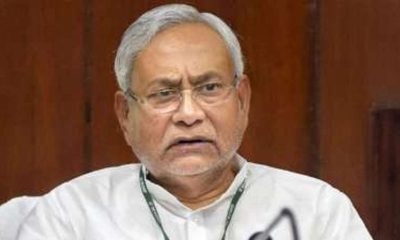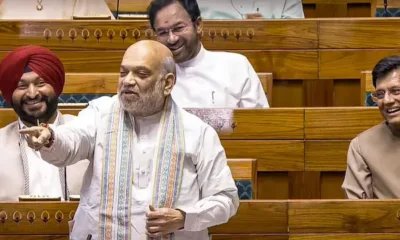Latest Politics News
After Amit Shah’s Mughal dominance take on history, Nitish Kumar asks how can anyone change history
Nitish Kumar had not supported his ally BJP on the issues such as the Ram temple in Ayodhya, abrogation of Article 370, Uniform Civil Code, triple talaq, NRC and population control bill.

India News
PM Modi accuses Congress of anti-Sikh bias over Rahul Gandhi’s ‘traitor’ remark
Prime Minister Narendra Modi accused Rahul Gandhi of targeting BJP MP Ravneet Singh Bittu with a ‘gaddar’ remark because of his Sikh identity while speaking in the Rajya Sabha.
India News
PM Modi skips Lok Sabha reply as protests force repeated adjournments
PM Modi did not deliver his Lok Sabha reply today after sustained Opposition protests led to repeated adjournments over a dispute involving Rahul Gandhi’s proposed speech.
India News
President’s Rule revoked in Manipur as NDA set to form new government
President’s Rule has been withdrawn in Manipur nearly a year after its imposition, paving the way for a new NDA-led government under Yumnam Khemchand Singh.
-

 Latest world news11 hours ago
Latest world news11 hours agoPakistan faces domestic backlash after India secures lower tariffs in US trade deal
-

 Latest world news12 hours ago
Latest world news12 hours agoNew Delhi free to buy oil from any source, Russia says amid US deal claims
-

 Cricket news11 hours ago
Cricket news11 hours agoPakistan PM Shehbaz Sharif confirms boycott of India match at T20 World Cup
-

 India News7 hours ago
India News7 hours agoManipur Assembly to meet at 4 pm today, floor test likely under new chief minister
-

 India News2 hours ago
India News2 hours agoPM Modi accuses Congress of anti-Sikh bias over Rahul Gandhi’s ‘traitor’ remark












